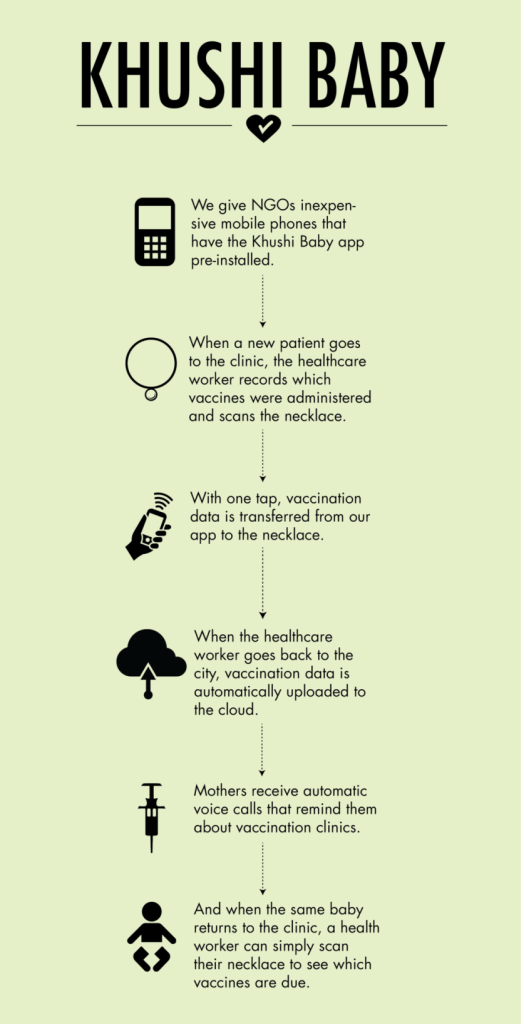It is a known fact that many babies, mostly the poor ones and born into an uneducated family, are prone to diseases which may be fatal, because of not vaccinating them against these diseases. Some of the babies suffer diseases and recover, some die of it, some have a lifetime paralysis because of its incidence.
In India, it has always been a practice to provide vaccinations to the impoverish babies and children. They are provided in camps and records are kept. These records are kept in log books which end up getting lost or damaged at times. Also, these records may not be transferred properly from one NGO to another. And even the vaccine cards given to the baby’s families are not kept carefully. This makes it almost impossible to keep track of the vaccine issues and other comments. Sure, these records could be digitized. But the families must at least retain some sort of an ID.
As a solution to this, a group of students from Yale University have come up with an inexpensive digital necklace called a Khushi Baby which stores all the details of the baby in the necklace pendant. This pendant can be hung in the traditional threads or gold chains or anything the baby wears. Or a better option would be to keep it safely in the house and use it only when required. This pendant stores all the medical information of the baby.
This is how Khushi Baby works:
Source: Khushi Baby
All that a healthcare worker has to do is to tap their phone on the baby’s pendant. And voila, the near-field communication transfers all the details to your smartphone. They can store details of the current visit and update the information in the pendant. This app automatically uploads all of the data to the cloud when the phone enters an area with cellular service. The App is also programmed to call the families automatically to update them about the upcoming vaccination camps and why it is important for their children.
It is good to see such inexpensive digital technology innovations to help the poor and uneducated.
Watch Khushi here…



